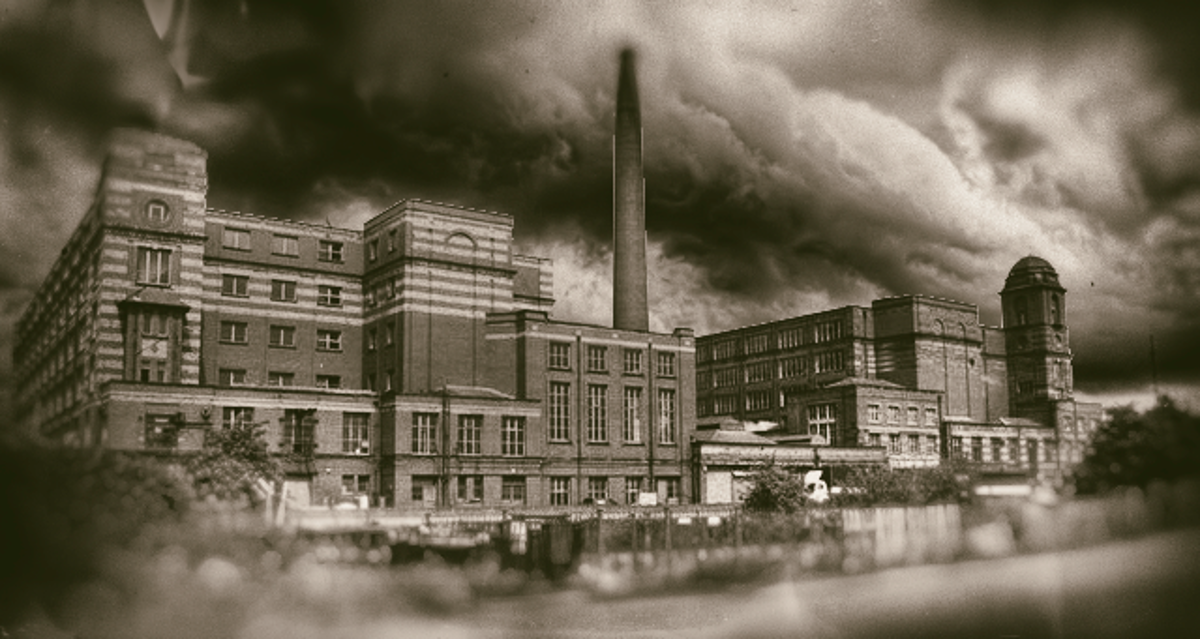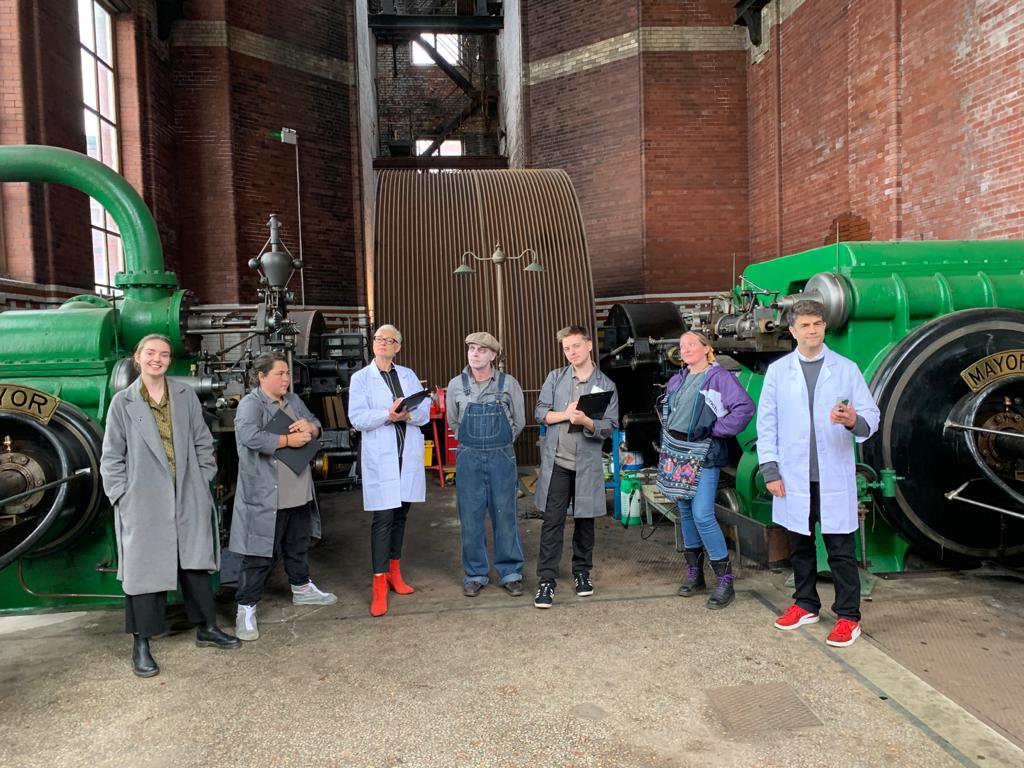Ghost Hunt at Spinners Mill

Tom Bowtell of KIT Theatre and Elliott Hall of Kings Digital Lab worked in collaboration with Leigh Ambassadors group to create a new Digital Ghost Hunt at Spinners Mill for family audiences (9+) inspired by real historical events.
Listen to an episode of the Exchange's podcast Connecting Tales discussing the show, with Tom, Elliott, and Leigh Ambassador (and part time ghost) Mike Burwin.
Emma Bradburn, intern for the ‘Civic Theatres: A Place for Towns’ research project wrote an account of the show on her blog.
The Mill show was the project's first independent commission. As part of the Manchester Royal Exchange's Local Exchange programme, Tom pitched a group of Leigh ambassadors on the idea of doing a ghost hunt at the mill. It would be part of the Den festival , the culmination of the Exchange's three year residency program in Leigh. The ambassadors were excited by the idea, and the date was set for summer 2020. Then one or two other events intervened. We finally got the chance to make the show in August this year.
The Digital Ghost Hunt creates a brand new story around the history and memories of the building we're working in. Our first production at the Battersea Arts Centre used its history as the former Battersea Town Hall. Our show at the York Theatre Royal was based on the ghost stories told about the theatre. And at the Garden Museum, which is housed in a 16th century deconsecrated church, the show ended at the actual grave of our ghost.
Spinners Mill has many stories to tell of the people who have worked there since it opened in 1912 (including mysterious supernatural events). For this production Tom Bowtell and I used an accident from more than a hundred years ago, when the mill's great steam engine(pictured below) blew up. We took a little dramatic license and told the story of the Mill and the people who worked there through the ghost of a worker killed in the explosion (in reality, no one died.)

As we devised the show, we kept in contact with the local ambassadors, asking them questions about the building and the area, showing them drafts of the story we were building around it, and looking for ways that we could collaborate during the production. This ensured our work was anchored in the local community, even if practicalities and COVID meant we were doing most of the writing in London.
During performance week, one of the ambassadors shadowed my work setting up the Augmented Reality elements of the show, and we even managed to recruit two of the ambassadors and a member of the Mill's board into our cast. We also cast our junior agent parts from the local area, to support early career practitioners and more importantly reflect the region it was working in.
Our story began in the Den theatre itself, recruiting our family audience into a 'training' program that quickly turns into a real ghost hunt. I give them our SEEK device - the Spiritual Existence Evidence Kit - and let the young ghost hunters find the source of the disturbance. The first site of investigation was a labyrinth of industrial junk lovingly built by us nearby, with entrances just big enough for the young hunters.
What they find leads them inside the mill, to interrogate the volunteer making tea (one of our Leigh Ambassadors) about an engineer named Stanley who died in the accident. He was blamed for the accident until the ghost hunters uncovered a secret cache of letters, and a historical wrong against our spirit. Together the audience sets the record straight, by rewriting an exhibit on the accident in the engine room, finally setting the ghost free. Stanley appears to thank them, bring the old engine to life in the process.

Some reactions from our audience:
When we saw him (the ghost) at the end, it was upsetting but in a good way!
Relieved audience member
We’ve never done anything like this. We really enjoyed it.
Leigh audience member
I was a bit scared when the box fell it gave me a FULL HEART ATTACK.
A young (and completely fine) ghost hunter
Our audience was drawn almost exclusively from Leigh and the surrounding area. It was great to work with audiences who had little experience of immersive theatre or AR, and approached both with enthusiasm. It was fascinating for Tom and I to watch how children of different ages fell into different roles in the story: older children were more interested in our puzzle elements, keeping the narrative of track, while younger members provided the energy and belief that sustains a collective story world like the Ghost Hunt. (the adults meanwhile, in the words of our chief ghost hunter Deputy Undersecretary Quill, "were not entirely useless.")
In the coming year the project is planning to do more work with early career practitioners in immersive theatre, as part of the lab's project to collaborate and support the Digital Creativity ecosystem. As for the Ghost Hunt, the Ministry of Real Paranormal Hygiene (MORPH) is famously secretive about its work, but there is always another ghost to find, to help, and to set free.

The cast, dwarfed by the spectacular (and potentially dangerous) historic machinery
Cast
The Ministry of Real Paranormal Hygience (MORPH)
Deputy Undersecretary Quill - Nicky Hargreaves
Junior Agents of MORPH- Mica Sinclair & Leif Black
Stanley the Ghost played by Mike Burwin and Peter Rowlinson
Design by Kirsty Harris
KIT Production Manager Anna Myers
Produced by Ailbhe Treacy
Created by Tom Bowtell & Elliott Hall
In addition to support from King's College London and Sussex University, this production was made possible by a generous commission from the Manchester Royal Exchange and featured as part of their Den festival.
